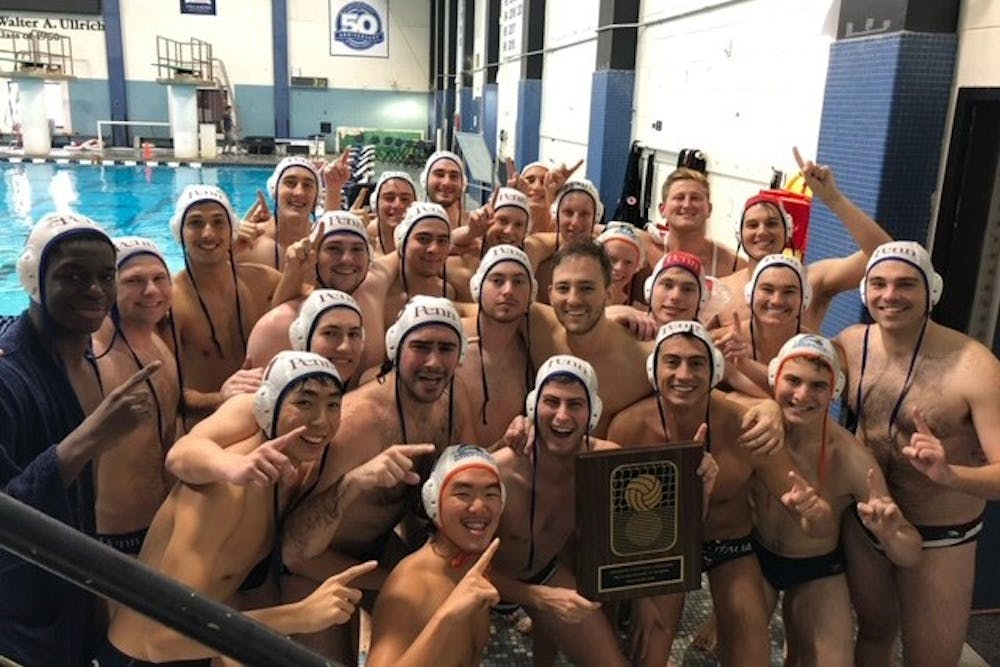They may not be varsity, but they're still making history.
After defeating rival Penn State in overtime on Oct. 24, Penn’s club water polo team clinched the top spot in the Mid-Atlantic Division to advance to the National Collegiate Club Championship in Huntsville, Ala.
This is the team's first division title since 2013 — where they placed fifth in the championship — and in recent years, Penn State has dominated the division, winning six of the past eight titles. In fact, Penn’s only loss this season was in its first match of the season against the Nittany Lions.
“[The success is] just really impressive because a few years ago when I started on the team, we had five, six, seven guys," club president Matteo Brunel said. "You play with seven people on the field, so it was always a bit of a struggle getting people to games.”
He explained that, in his freshman year, there was difficulty retaining players that would show up for a few practices and quit the team after realizing the extent of the time commitment or the physical demands of the sport.
“This year we have a bunch of guys who are really dedicated and really love coming on playing. And that’s super exciting for me to see," Brunel said. "It’s very rewarding.”
The team's success has pushed its players to strive for another goal: creating a team at the varsity level. The higher status would bring key funding and resources to the sport that could end up assisting the club team’s practical needs, such as new equipment, support from coaching staff, and better training facilities. If this happened, Penn would become the fourth Ivy League school — along with Brown, Harvard, and Princeton — to sponsor a varsity polo team.
The desire to be bumped up to varsity stems from the feeling that a club team is great for people who have limited experience with water polo.
RELATED:
Penn men's and women's squash enter the season as contenders for best team in the nation
Penn field hockey celebrates Senior Day and season-closer with win over Dartmouth
"[The varsity level would allow Penn to] showcase the talent of the players we have in the pool and to provide an opportunity for players who do want to play water polo at a very high competitive level, but also get an education from Penn,” Brunel said.
Due to the Varsity Blues scandal and the COVID-19 pandemic, conversations around the promotion of club sports to varsity have stalled. However, the team is hopeful that a varsity program can be established within the next 10 years, especially given the support the team has from alumni.
The Quakers will square off against Boston College on Nov. 12 in the first round of the National Collegiate Club Championships.









